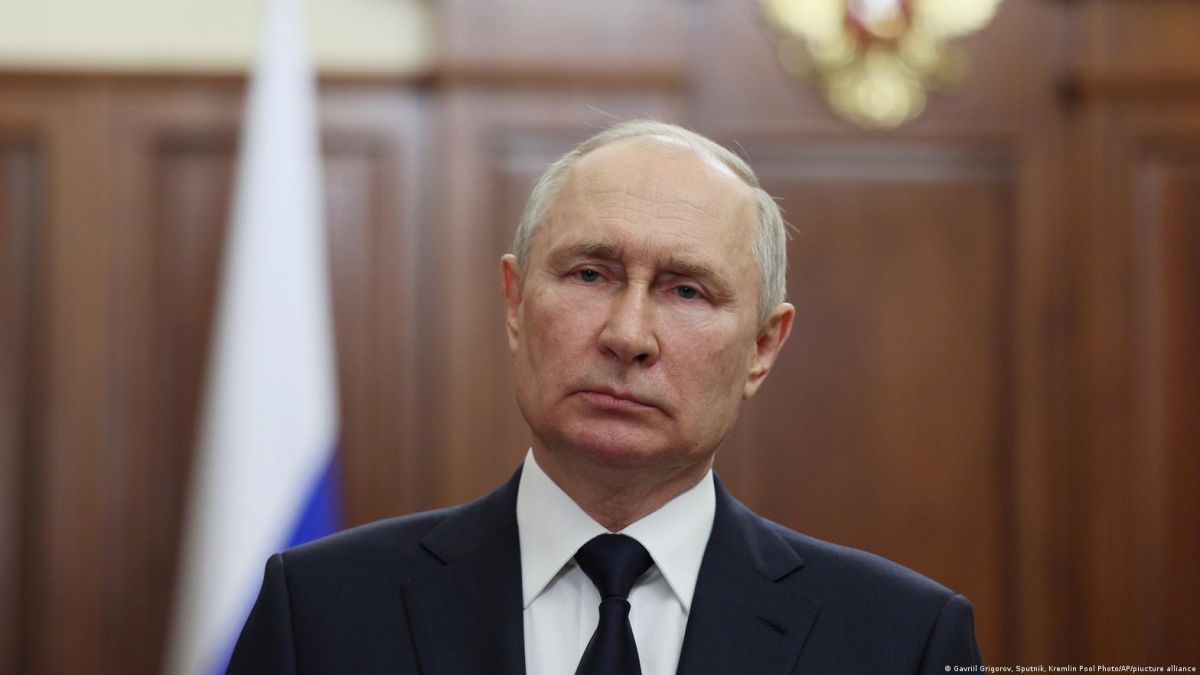Events in Russia over the past weekend have changed the narrative about the stability of Putin’s government. The questions that are now being raised pose a threat to the president. And as in the past, the economy is a key factor.
Since the invasion of Ukraine in February 2022, the Russian economy has been one of the main targets of sanctions by Western nations seeking to support Ukraine, even as many European countries continued to buy Russian oil and gas. At the same time, Moscow was finding new energy partners in China and India. This led the country to a record trade surplus of $227 billion (211 billion euros). Some very bulging coffers that helped Putin to maintain the flow of money to various sectors and interest groups.
A shield against sanctions
According to Chris Weafer, an investment adviser, that largesse also helped keep anti-Putin sentiment in check.
“It allowed the government to stabilize the economy and subsidize areas like the automobile sector, which is politically very important because it is a great provider of employment, the only one in some regions of Russia,” he told DW, referring to the large protests that took place. in car-producing areas during the 2009 financial crisis.
However, there are signs that the situation has begun to change this year. Elina Ribakova of the Bruegel think tank even sees a connection between the economic situation and the riot.
“If oil prices had risen, Putin would have been able to continue giving handouts to his former cook (referring to Yevgeny Prigozhin) and allocate more resources to social spending,” he says.
According to Kirill Rogov, a Russian political scientist who founded and runs the “Re:Russia” platform, high oil prices were what convinced Putin he could invade Ukraine in the first place. Therefore, if oil prices fall, the natural consequence of this economic dependency would in all probability be greater political instability in Russia.
“I think if oil prices stay low for two years, there would be a real deterioration in living standards and then protests,” Rogov says.
Falling numbers
And those monthly oil revenues are already down sharply compared to the 2022 windfall.
Last month, the country’s finance minister, Anton Siluanov, admitted that Western sanctions, which have forced Russia to sell discounted oil to countries including India and China, have started to hit revenues.
According to official figures, energy revenues fell by more than 50% in the first quarter of 2023. “When September arrives, we will probably be facing a budget adjustment to reduce spending. It can’t happen in the military, so then you start to reduce spending in the broader economy,” Weafer said.
Could oil burn down your own house?
Weafer believes that a leadership change driven by economic turmoil is still some way off, but says Putin’s position depends on keeping elites happy.
He, Ribakova and Rogov all agree that a crash in oil prices would be fatal for Putin, although Ribakova is highly skeptical that the system itself will change. “Of all these scenarios of a post-Putin Russia, the probability of a stable, democratic Russia is, in my opinion, very low,” she concluded.
